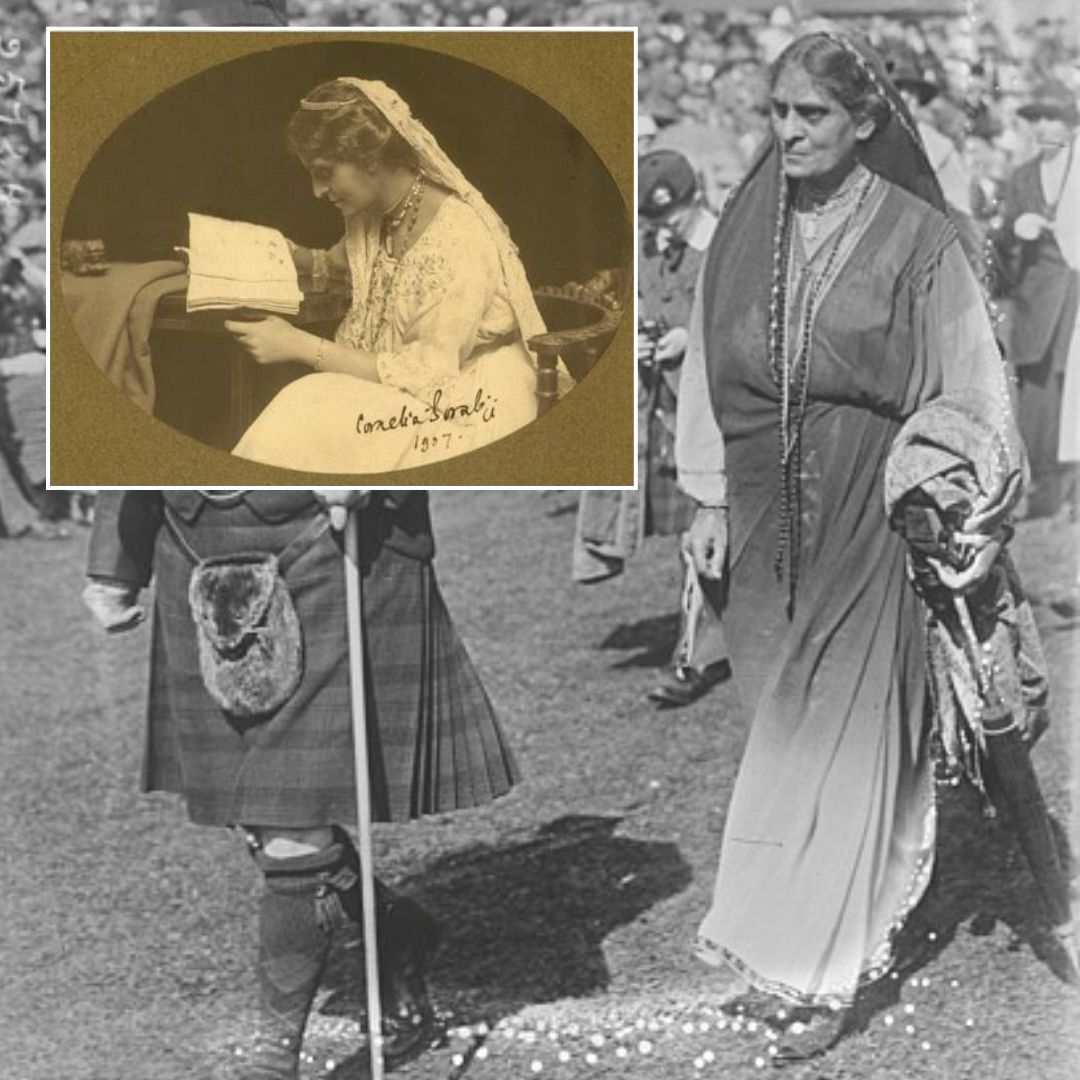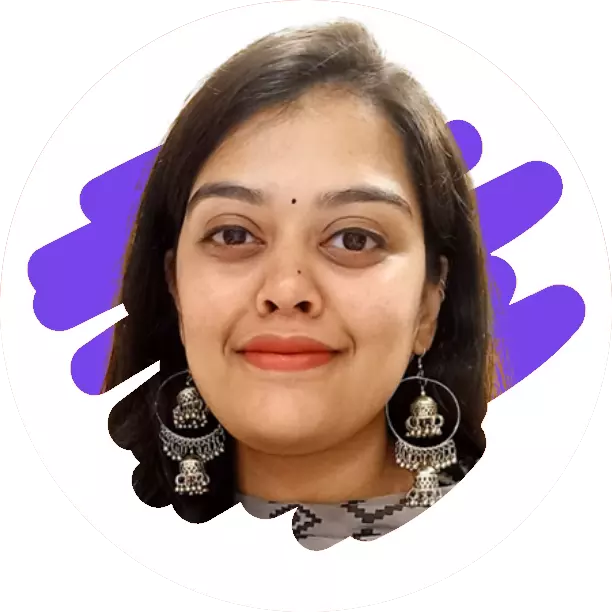
Image Credits: Wikipedia and Somerville College
Know About Cornelia Sorabji, India & Britain's First-Ever Woman Lawyer Who Was Disliked By Indian Nationalist Leaders
Writer: Laxmi Mohan Kumar
She is an aspiring journalist in the process of learning and unlearning many things. Always up for discussions on everything from popular culture to politics.
India, 15 Nov 2022 11:13 AM GMT
Editor : Jayali Wavhal |
She writes about gender issues, human interest, and environment.
Creatives : Laxmi Mohan Kumar
She is an aspiring journalist in the process of learning and unlearning many things. Always up for discussions on everything from popular culture to politics.
On Cornelia Sorabji's birth anniversary, The Logical Indian looks back at the woman who broke through many glass ceilings and stood against the popularised nationalistic spirit.
Being a woman who marked the first in multiple realms, Cornelia Sorabji was the trailblazer who broke the glass ceiling for many women in the country. She was the first female student to attend legal studies at the prestigious Oxford University, the first female graduate from Bombay University, and the first woman advocate who got to practise law in India and Britain.
Sorabji led a life that was dedicated to activism, and her strong ideologies often drove controversies and dislike from popular figures. However, her name continues to be honoured and remembered in British and Indian land for her numerous contributions. A symbol of the same is a bronze bust of hers placed at Lincoln's Inn, the High Court Complex, and the large-sized portrait at the London National Portrait Gallery, as a mark of respect for the first ever lady to don the lawyer's gown in their country.
Early Life And Advocacy
Born in Nasik in the 1860s, Sorabji was heavily influenced by her parents and their professional space of work. They had advocated for a strong grounding in education and social work for Sorabji and her seven siblings. The 1860s were a time when many educational institutions rejected female applicants for higher education and shunned the idea of offering them an equal standing as male students.
After a blend of homeschooling and mission schools, Cornelia went on to apply to Deccan College. Prior to her admission request, all her sisters were rejected from attending Bombay University for being female applicants. However, she managed to break past the entry barrier and became the first woman to ever be admitted to Deccan College, where she went on to graduate with a first-class degree. The top rank holders of the University were then eligible for an Oxford scholarship, which was denied to her initially for the sole reason of being a female student.
Her academic brilliance did not go unnoticed, and a few prominent English women in Bombay raised funds and voices to send her to Oxford for her education. By the year 1889, Sorabji went to Oxford and joined Somerville College there, becoming the first woman student and Indian national to study at a British University. She opted for law as her subject of study and became the first woman to pass the Bachelor of Civil Laws (BCL) examinations. The discrimination followed up even there as Oxford refused to grant her the degree as no woman until then was permitted to register as an advocate.
Returning from Oxford, Cornelia actively began looking for a legal post in her home ground. She went on to complete an LLB course in 1897 from Bombay University, where her sisters were rejected earlier. As women continued to be barred from becoming barristers until 1923, she continued to read law at the Solicitors' firms and joined with her younger brother to create a brother-sister law practice in Allahabad. Back then, as a solicitor, she prepared cases for over 600 women and orphans and, many a time, charged no fees from them while supporting their legal battles.
It was only in the year 1920 when Oxford started awarding degrees to women and the London Bar allowed them to practise law, that Sorabji travelled back to England to collect her degree. She returned to Calcutta, where she enrolled as a Barrister at the High Court, becoming the first-ever woman to practise law in India and in Britain.
Leaving Behind Advocacy For Activism
Sorabji's mother, Francina Santya Ford, was born a Hindu and was adopted by a British couple belonging to the Indian Army after being orphaned. She married Sorabji Kharsedji, a Parsi but a practising Christian. Cornelia was the youngest among eight children, and they all were raised with diverse cultures amidst British customs. Both her parents were active in social work and had established several schools for Parsi, Hindu, and Muslim children in Poona. Cornelia, too, was involved in many of their social reform activities and grew up to build her own movement.
Returning to Calcutta, she associated with the Bengal branch of the National Council for Women in India, the Federation of University Women, and the Bengal League of Social Service and worked across Bengal, Bihar and Assam. She represented the Purdanashins, women who were veiled and restricted from communicating with men and the outside world.
On the same lines, she was a votary for the abolition of child marriages and the practice of Sati and worked alongside social reformer Pandit Ramabhai. Her social services were recognised by the government of India with the Kaiser-i-Hind Gold medal in 1907, and by 1929 Sorabji gave up legal practice to entirely devote her time to social work.
According to an article by The Hindu, even though Sorabji was a nationalist initially, she gradually became an anglophile and found her leaning toward the British line. She courted several controversies due to the same and even garnered spats with several nationalist leaders, including Mahatma Gandhi. She strongly opposed Gandhi's idea of the civil disobedience movement and propagated her political views across India and abroad. Back in 1932, she also pulled a few of her political strings to obtain permission to interview Gandhi for a British journal. However, the interview had to be aborted halfway through due to a spat between them over their difference in ideologies. This incident received widespread media attention and was covered by both Indian and British publications.
In 1931, she moved back to England and settled there, but she continued to put forward her ideas through her words. She wrote a number of books, short stories, and articles for journals. Her ideology and social work have been highlighted through her autobiographies, India Calling: The Memories of Cornelia Sorabji and India Recalled.
Also Read: Meet The Pakistani Woman Food Delivery Agent Who Is Inspiring Others With Her Story
 All section
All section














